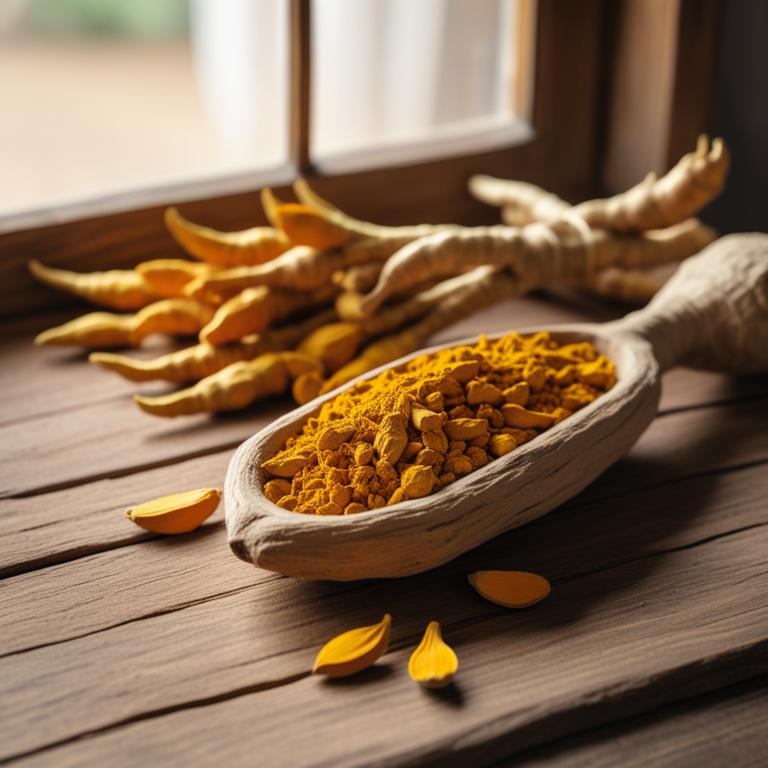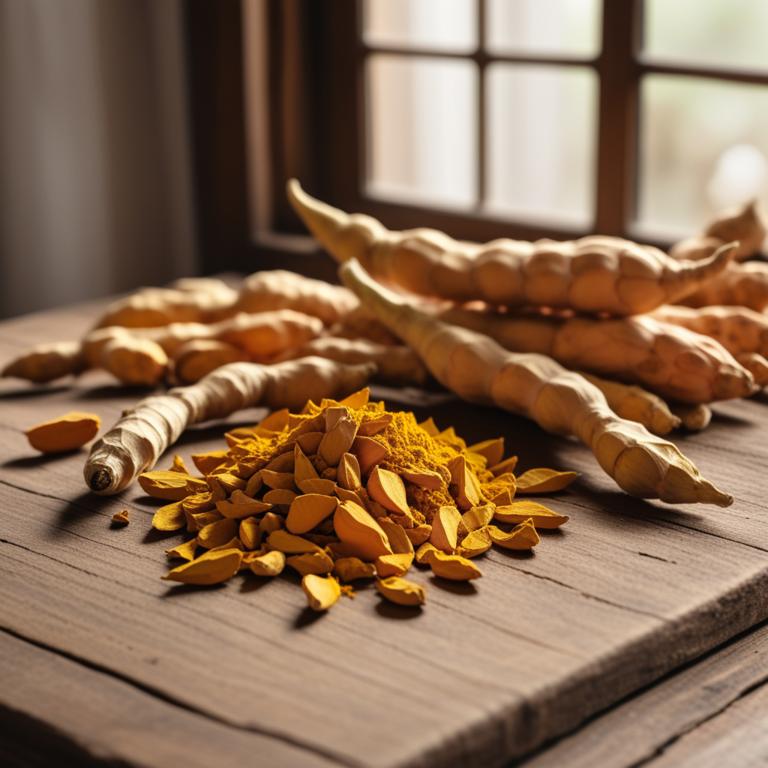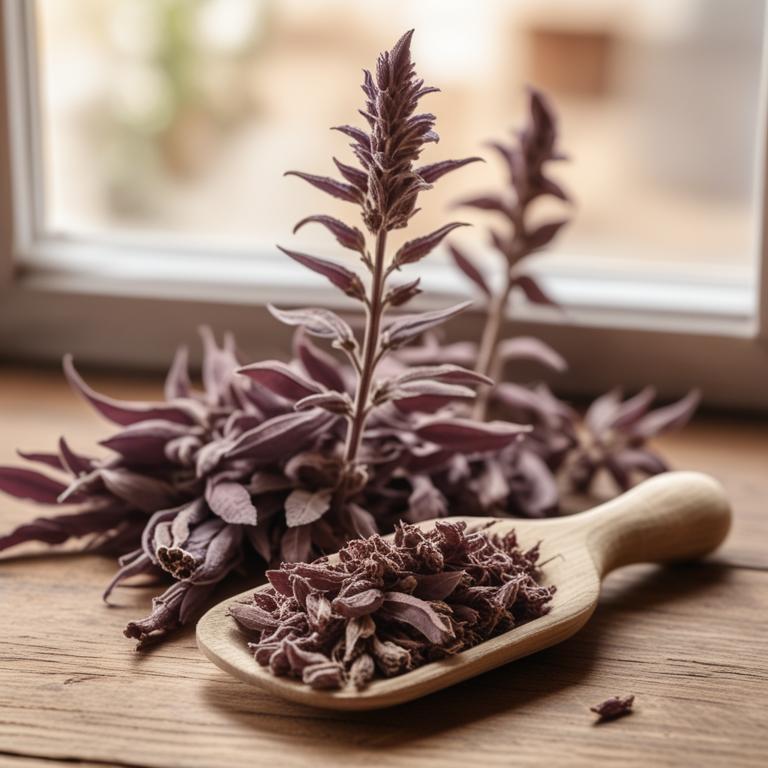Updated: Dec 1, 2024
Sour Taste in Mouth: A Guide to Medicinal Herbs and Preparations

A sour taste in the mouth can be a real nuisance, making everyday activities like eating and talking uncomfortable.
It can also be a sign of an underlying issue, like acid reflux or a mouth infection, which can affect your confidence and overall well-being. When we have a sour taste in the mouth, it's usually because of an imbalance in the body's digestive system or a bacterial overgrowth in the mouth. This imbalance can be caused by a variety of factors, including poor diet, stress, and certain medications.
Herbs like slippery elm and licorice root are known for their soothing properties and can help calm the digestive system and reduce inflammation in the mouth. Another herb, peppermint, has natural antibacterial properties that can help combat bacterial overgrowth and freshen the breath. These herbs can be consumed in various forms, such as teas, tinctures, or even chewing gum. Drinking peppermint tea, for example, can help calm the stomach and reduce the sour taste in the mouth.
Similarly, slippery elm tea can help soothe the digestive system and reduce inflammation.
Table of Contents
- What situations result in a sour taste in mouth?
- What benefits do herbs offer for sour taste in mouth?
- Which medicinal herbs are linked to a sour taste in mouth?
- What herbal preparations are most commonly associated with a sour taste in mouth?
- What herbs should be avoided by those experiencing a sour taste in mouth?
- FAQ
What situations result in a sour taste in mouth?
The main causes of sour taste in mouth are quite varied, but some common culprits include oral thrush, tongue inflammation, and gastroesophageal reflux.
Oral thrush is a fungal infection that can cause a sour or metallic taste in the mouth, often accompanied by white patches on the tongue and inside the cheeks. Tongue inflammation, on the other hand, can lead to a burning or sour sensation, especially if it's caused by a bacterial or viral infection. Gastroesophageal reflux is a condition where stomach acid flows back up into the mouth, causing a sour taste and sometimes heartburn. Some foods and drinks can also cause a sour taste in the mouth, such as sour candies and lemon juice.
These are obvious culprits, as they contain acidic ingredients that can stimulate the taste buds and make the mouth feel sour. However, some vitamin deficiencies can also contribute to a sour taste in the mouth. For instance, a deficiency in vitamin B12 can cause a sour or metallic taste, while a lack of vitamin B6 can lead to a burning sensation in the mouth. These causes are often related to each other, and addressing one issue can help resolve others. For example, treating oral thrush with antifungal medications can help eliminate the sour taste.
Similarly, managing gastroesophageal reflux through lifestyle changes or medications can help reduce the frequency of sour taste episodes.
What benefits do herbs offer for sour taste in mouth?
Using herbs to eliminate sour taste in the mouth can be really helpful.
One of the main benefits is that they can provide fast relief from discomfort. These herbs are often easily available and affordable, making them a cost-effective solution. They can also be used to prevent sour taste from coming back, by reducing the production of acid in the mouth.
Additionally, some herbs have antibacterial properties, which can help prevent bad breath and gum problems. They are also gentle on the mouth and throat, making them suitable for people with sensitive teeth or gums. Some herbs can even help reduce inflammation and soothe mouth ulcers.
Using herbs to eliminate sour taste can be a convenient and natural way to keep your mouth feeling fresh and healthy.
Which medicinal herbs are linked to a sour taste in mouth?

Herbs can be really helpful when you have a sour taste in your mouth.
One of the best options is Zingiber officinale, or ginger, which has anti-inflammatory properties that can help soothe mouth irritation and reduce inflammation. This can help get rid of the sour taste and leave your mouth feeling fresh. Another herb that's good for a sour mouth is Mentha x piperita, or peppermint. The menthol in peppermint oil can help numb the mouth and reduce pain, making it easier to tolerate the sour taste. Plus, the refreshing smell of peppermint can help distract you from the sourness. Cinnamon, or Cinnamomum verum, is also a good choice.
Cinnamon has antimicrobial properties that can help kill bacteria in the mouth, which can contribute to a sour taste. When you eat or drink something with cinnamon, it can help balance the pH in your mouth and get rid of the sourness. Turmeric, or Curcuma longa, is another herb that's good for a sour mouth. Turmeric has anti-inflammatory properties that can help soothe mouth irritation and reduce inflammation. It also has antibacterial properties that can help kill bacteria in the mouth. Fennel, or Foeniculum vulgare, is a gentle herb that can help soothe mouth irritation and reduce inflammation.
Fennel seeds have a sweet and anise-like flavor that can help mask the sour taste and leave your mouth feeling fresh.
What herbal preparations are most commonly associated with a sour taste in mouth?

If you experience a sour taste in your mouth, herbal preparations can be a great way to help alleviate the issue.
One popular option is drinking tea made from herbs like neem, sage, or peppermint. These teas are good because the active ingredients in the herbs can help neutralize the acidity in your mouth and reduce the sour taste. Another option is a decoction, which is made by boiling herbs in water for a longer period of time. Decoctions can be more effective than teas because the boiling process helps to release more of the herbs' active ingredients into the water. This makes decoctions a good choice for people who need a stronger remedy for a sour taste. Infusions are similar to teas, but they're made by steeping herbs in hot water for a shorter period of time.
Infusions are good because they're often gentler on the stomach and can be easier to digest than decoctions or teas. This makes infusions a good option for people who experience heartburn or acid reflux. Herbal tinctures are liquid extracts made from herbs and can be taken as a mouthwash or added to water to drink. Tinctures are good because they contain a high concentration of the herbs' active ingredients, making them a quick and effective way to alleviate a sour taste in the mouth. However, it's essential to use tinctures with caution and follow the recommended dosage. Finally, capsules can be a convenient option for people who prefer to take their herbal remedies in a pill form. Capsules are good because they allow for a precise dose of the herb to be taken, which can be especially helpful for people who experience severe or persistent sour tastes.
However, it's crucial to choose a reputable manufacturer to ensure the quality of the capsules.
Additional Resources:
What herbs should be avoided by those experiencing a sour taste in mouth?
If you have a sour taste in your mouth, it's best to limit your use of Citrus reticulata, also known as a type of citrus fruit.
This herb can be found in many products, including teas and candies, and it's known for its sour and acidic properties. Consuming it may make your mouth feel even sorer. Rosemary, or Rosmarinus officinalis, is another herb to be cautious with. It has a strong and bitter flavor, which can be overwhelming if you're already experiencing a sour taste in your mouth. Its strong scent and taste can also make your mouth feel drier, which may make the sourness feel more intense. Licorice root, or Glycyrrhiza glabra, is a common ingredient in many products, including teas and candies.
While it's known for its sweet flavor, it can also have a bitter and sour aftertaste. If you're already experiencing a sour taste in your mouth, consuming licorice root may make it feel worse. Thyme, or Thymus serpyllum, has a strong and pungent flavor that can be overwhelming if you're already experiencing a sour taste in your mouth. Its strong scent can also make your mouth feel drier, which may make the sourness feel more intense. Milk thistle, or Silybum marianum, is another herb to be cautious with. It has a bitter and earthy flavor that can be overwhelming if you're already experiencing a sour taste in your mouth.
Its strong scent and taste can also make your mouth feel drier, which may make the sourness feel more intense.
FAQ
Are there any specific herbs that can prevent sour taste in mouth?
Some herbs like parsley, basil, and cilantro have natural properties that can help neutralize sour taste in the mouth. These herbs contain compounds that can balance the acidity in the mouth, making them a good choice after eating sour foods like citrus or tomatoes.
Is it safe to use herbal remedies for sour taste in mouth during pregnancy?
When pregnant, it's best to be cautious with herbal remedies.
Some herbs, like peppermint and ginger, can help with a sour taste in the mouth, but others might not be safe. If you're unsure, check the ingredients and instructions carefully.
Always choose products from trusted brands, and follow the recommended amounts to minimize risks.
Are there any herbs that can reduce the frequency of sour taste in mouth?
Some herbs like parsley and cilantro can help reduce the frequency of sour taste in the mouth.
They have natural properties that help balance the body's pH levels and neutralize acidity.
Drinking parsley tea or eating fresh cilantro can make a difference, as they contain compounds that counteract sourness and promote overall oral health.
Related Articles
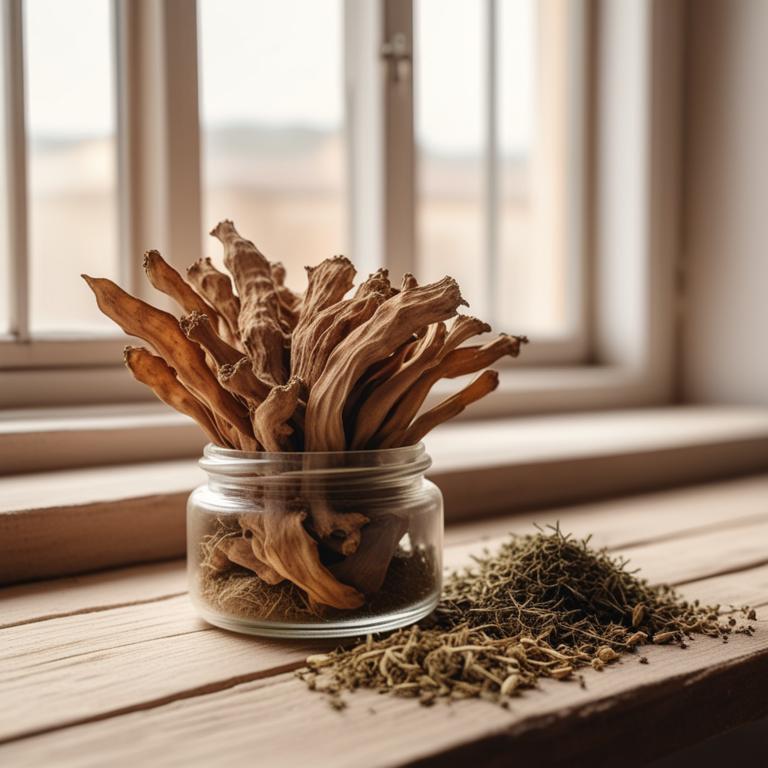
Gastroparesis Natural Treatment: Causes and Medicinal Herbs for Relief
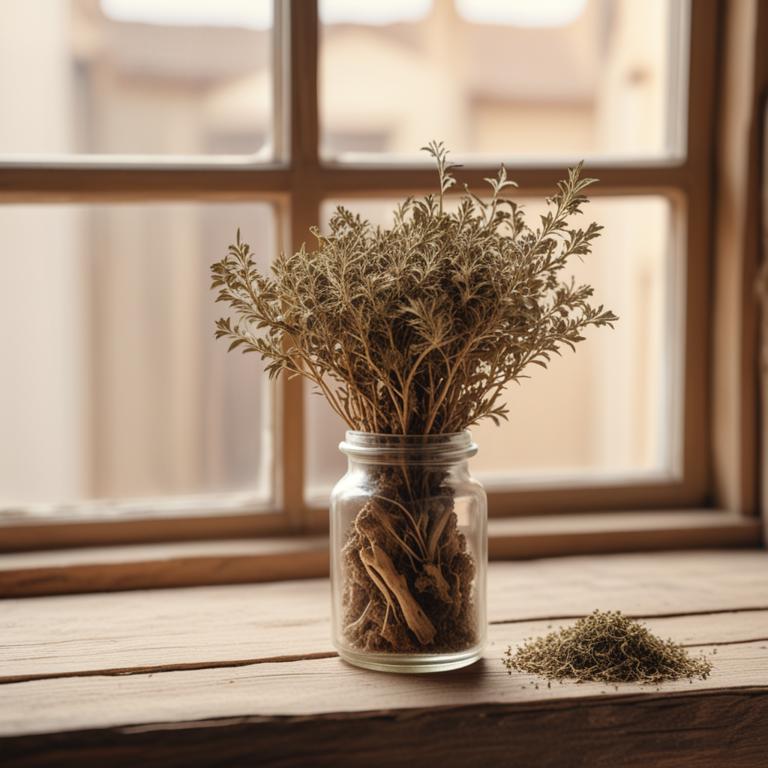
Diarrhea: Causes, Prevention, and Herbal Remedies
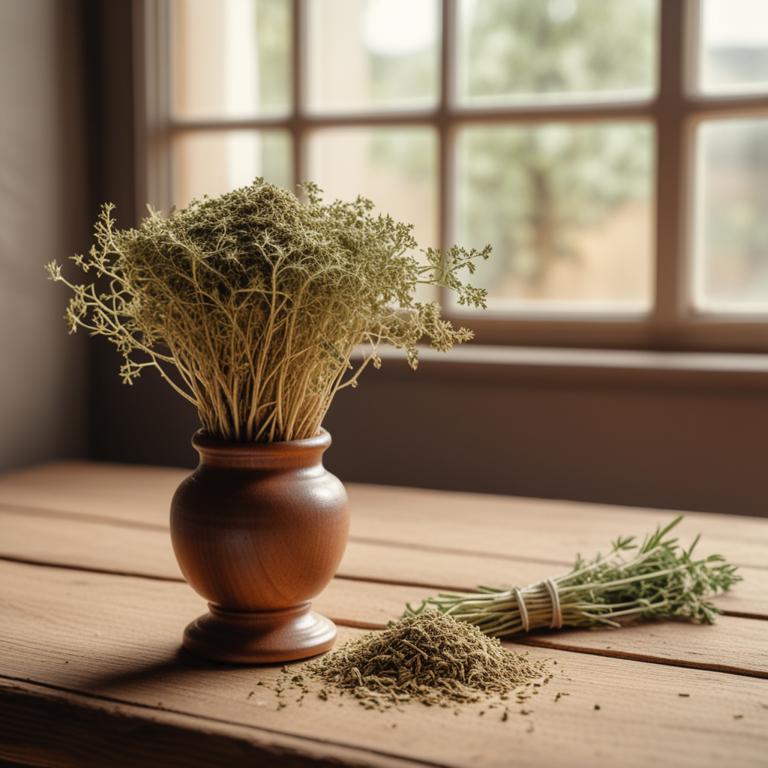
Burping Causes and Herbal Preparations for Relief
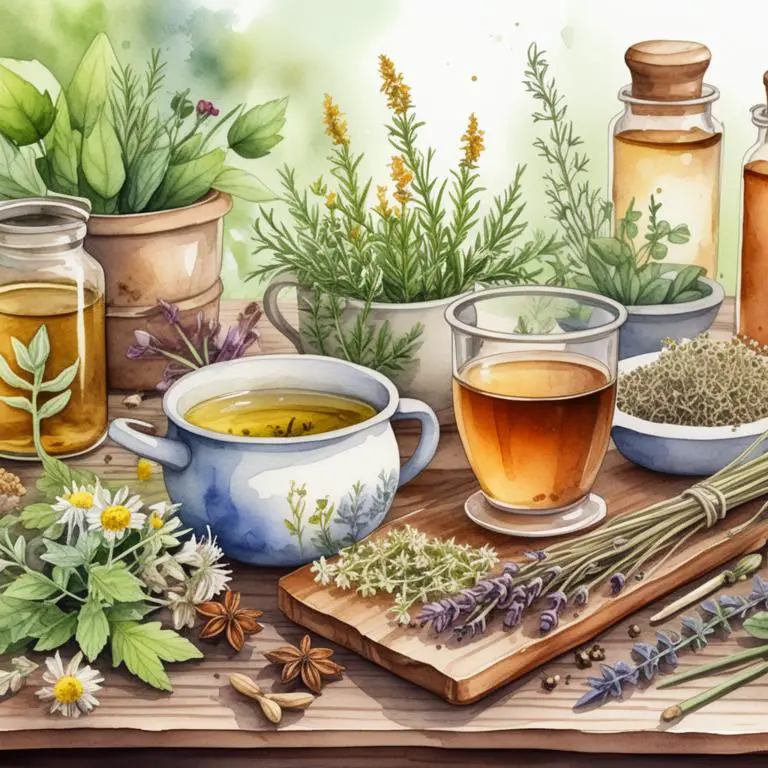
Gallstones: Herbal Remedies and Medicinal Herbs for Prevention and Treatment

Hemorrhoids Causes, Symptoms, and Natural Herbal Preparations
